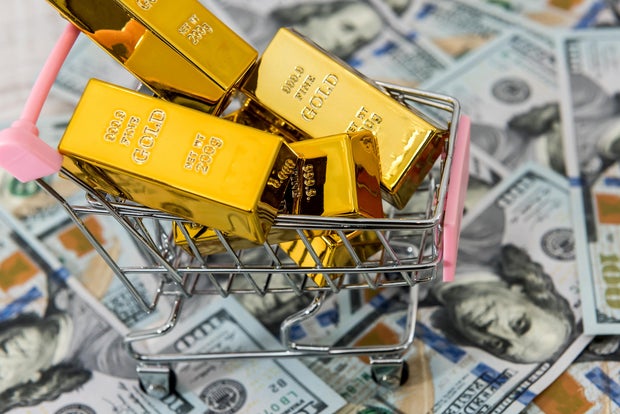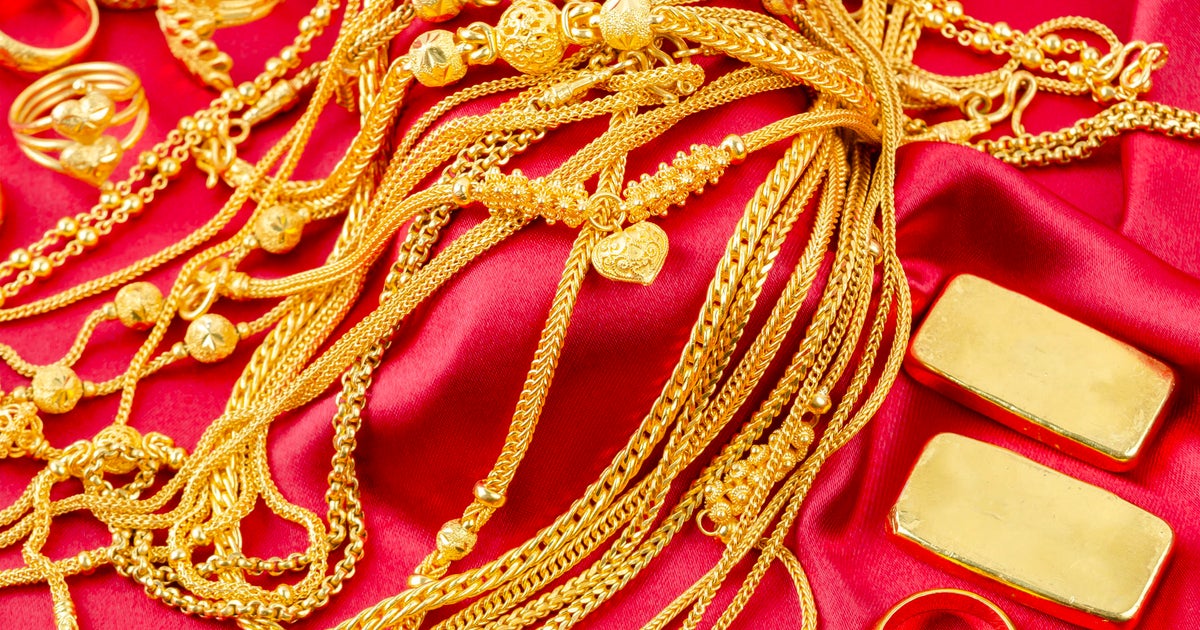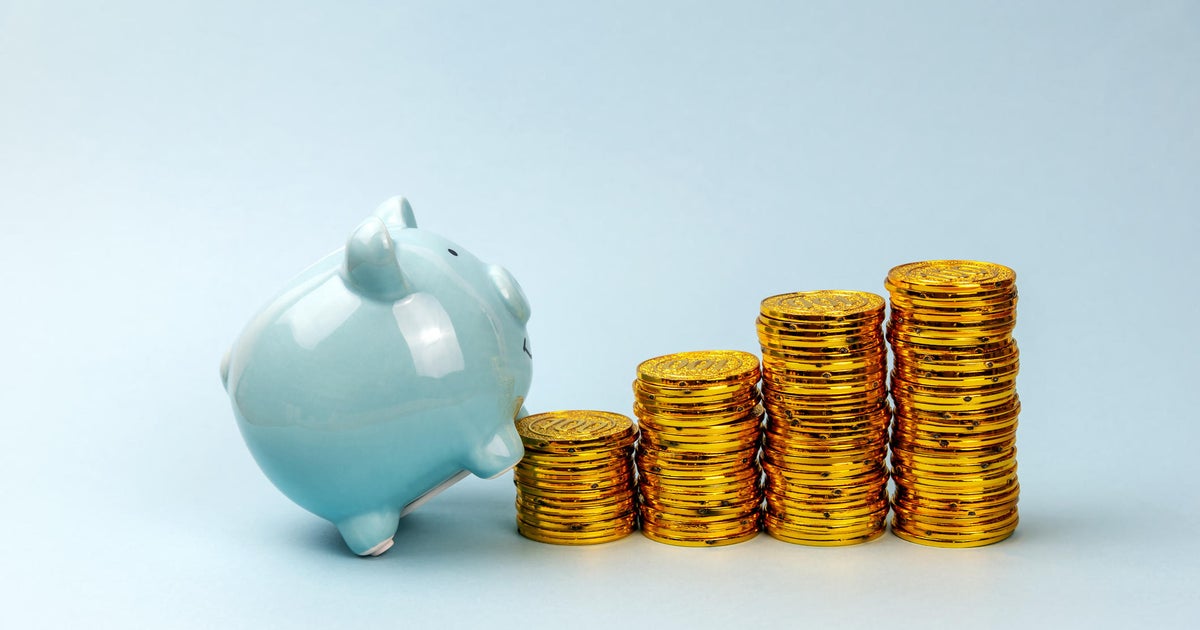Should you buy gold from a big retailer? Pros and cons experts say to know
Gold became an increasingly popular investment in 2024 as its price climbed upward while repeatedly hitting record highs. As a result, many new investors began buying gold bars and coins, hoping to turn a quick profit even though gold is normally a long-term investment used as a hedge against inflation.
The price of gold dipped sharply in November, though, driven in large part by a strong U.S. dollar and concerns about inflation ramping up. For those interested in buying gold online or in person, though, this dip may not be bad news. Instead, it presents a buying opportunity — but where should investors go to buy gold?
Costco and some other big retailers now sell gold bars, silver coins or other precious metals. The big question, though, is whether you should buy from these big box stores or whether you should limit your precious metal purchases to specialists like the best gold IRA companies. To help you decide, we've consulted with some experts to find out the pros and cons of buying gold from a big retailer.
Get started on your gold investing journey today.
Pros of buying gold from a big retailer
Buying gold from Costco and other big-name retailers has some definite advantages, including convenience and affordability.
"These are reputable companies," Luciano Duque, founder of C3 Funds, says. "Even though selling gold is not their core business, buying from them would not carry any type of counterfeit risk. I mean, I would rather buy gold bars from them than from a shady local pawn shop."
Not only are these big retailers reputable, but most people know and understand how to shop from them, which makes buying gold a simpler prospect.
"Buying gold is relatively easy with many big retailers," says Rob Burnette, CEO of Outlook Financial Center.
While you can't typically walk into the stores and purchase gold bars, it's just a matter of a few clicks on a website you're already familiar with.
While Costco requires a membership to buy gold, that's not necessarily a bad thing since warehouse club members already know they can trust the products they purchase from Costco. In fact, brand reputation is another big advantage of buying gold from a big-name company.
"As with any investment, there can be risks associated with the purchase of gold," says Andrew Wood, RICP, a retirement planning advisor with Daniel A. White & Associates. "Big retailers can help you feel more secure. I wouldn't go to just anyone on the street."
Wood says that when you buy gold, you need to "do your due diligence, find a reputable dealer, look at their history and background, and understand the fee and cost structure."
If you're buying from Costco, however, this limits the amount of vetting you need to do.
The cost and fee structure may also be another reason to buy your gold from a big retailer.
"They may have better pricing than smaller, more local options and their fees may be lower due to having a larger volume of transactions," Burnette says.
Michael Martin, vice president of market strategy at TradingBlock, agrees.
"Costco typically sells gold at around a 2% premium over the spot price, offering a reasonable markup. Also, Costco states on its website that shipping and handling are free, which is a big advantage since many gold dealers charge high delivery fees," Martin says.
Costco and other stores also deliver physical gold, which some investors prefer.
"Buying physical gold from retailers like Costco and Walmart can provide investors with peace of mind by giving them something tangible to hold. In a worst-case economic scenario, actually possessing the gold might offer a security that paper claims can't match," Martin says.
Find out how to add gold to your portfolio now.
Cons of buying gold from a big retailer
Although there are benefits, there are also some disadvantages to getting gold from a big box store. Most of this downside comes after you've made your purchase.
"The real question is how you sell the gold," Burnette says. "Will the large retailers buy the gold from you? What are the fees and commissions involved? You are at the mercy of the companies that will buy gold since the local supermarket isn't going to accept gold for your groceries."
Alex Ebkarian, COO and co-founder of precious metals dealer Allegiance Gold, also raises this concern.
"The biggest problem with Costco and Walmart is that they don't offer a buyback policy so people are stuck with their gold and no immediate place to go to sell it back. Reputable dealers have a buyback policy if circumstances arise where buyers need to sell," Ebkarian says.
These buyback programs offer more liquidity and eliminate the challenge that comes with owning physical gold and being unsure of how or where to sell it.
You also can't just assume the cost is competitive. Although Burnette says the markup and fees are often affordable, he also stresses the importance of finding out the total cost up-front. And Duque also warns that "sometimes premiums could be higher than those of a traditional gold dealer."
Gold companies may have to compete more on price since they can't rely on just being a household name to lure investors in. Plus, since gold and other precious metals are all they sell, they'll likely have a wider selection of investment offerings than the big-name retailers will.
The bottom line
Ultimately, gold companies can be the better choice for many — especially for serious gold investors. However, the important thing is to do your due diligence, consider the pros and cons of all options, and do your research to ensure you're buying from a reputable dealer at an affordable cost.




